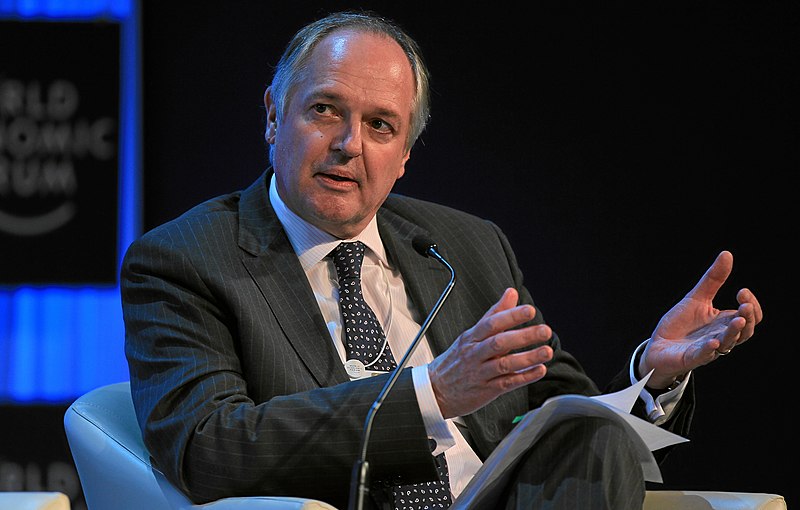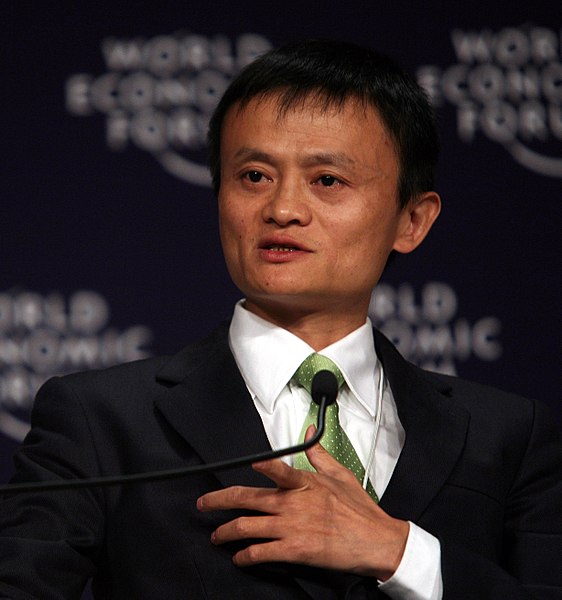Paul Polman: A Sustainable Leadership Model for Today’s Business Landscape
 The Early Years and Foundations of Paul Polman’s Sustainable Leadership
The Early Years and Foundations of Paul Polman’s Sustainable Leadership
Leadership is a complex and ever-evolving field, and there are countless individuals who have made significant contributions to the study and practice of leadership. One such leader is Paul Polman, who has spent over three decades working in senior leadership positions for some of the world’s most influential companies. Throughout his career, Polman has demonstrated a deep commitment to sustainability, employee empowerment, and collaboration with stakeholders, making him a role model for current and future leaders.
In this article, we will explore the leadership lessons and stories of Paul Polman, examining how he has built a strong foundation, practiced transformational leadership, driven sustainability, managed crises, empowered employees, and balanced short-term and long-term goals. By examining Polman’s leadership journey, we can gain insights into the qualities and behaviors that make for effective leadership in today’s complex and rapidly changing business landscape.
Before diving into Polman’s leadership journey, it is important to understand a bit about his background. Polman was born in the Netherlands and went on to study economics at the University of Groningen. After graduation, he worked for a variety of companies, including Procter & Gamble and Nestle, before joining Unilever in 2009 as its CEO. During his tenure at Unilever, Polman transformed the company’s approach to sustainability, making it a key part of the company’s strategy and values. He also worked to foster a culture of innovation and collaboration, empowering employees to drive change and create value for all stakeholders.
Polman’s leadership journey is a testament to the power of vision, collaboration, and a commitment to sustainability. By examining his leadership lessons and stories, we can gain valuable insights into what it takes to lead effectively in today’s rapidly changing world.
Building a Strong Foundation
Every successful leader has a strong foundation, built upon their personal values, beliefs, and experiences. For Paul Polman, this foundation was shaped early in life. He grew up in the Netherlands, a country with a long history of social responsibility and sustainable practices. This early exposure to sustainability and social responsibility had a profound impact on Polman’s worldview and leadership approach.
Polman went on to study economics at the University of Groningen, where he learned the importance of balancing economic growth with social and environmental responsibility. He also gained valuable experience working for companies like Procter & Gamble and Nestle, where he honed his leadership skills and learned the importance of collaboration and stakeholder engagement.
Through these experiences, Polman developed a strong foundation based on several key values and beliefs. First and foremost, he believes that businesses have a responsibility to address global challenges such as climate change, poverty, and inequality. He also believes that companies must collaborate with stakeholders, including employees, customers, suppliers, and governments, to drive meaningful change and create value for all stakeholders.
Polman’s commitment to sustainability is also a key part of his foundation. He has long believed that companies must embrace sustainable practices in order to ensure long-term success and value creation. This commitment to sustainability is evident in his work at Unilever, where he made sustainable practices a core part of the company’s strategy and values.
Another key aspect of Polman’s foundation is his focus on employee empowerment and innovation. He believes that employees are the key drivers of change and that businesses must invest in their development and provide them with the tools and resources needed to innovate and drive growth.
Polman’s strong foundation is a testament to the importance of personal values and beliefs in effective leadership. By staying true to his beliefs and values, Polman was able to build a successful career and make a meaningful impact on the world. His commitment to sustainability, stakeholder engagement, and employee empowerment serves as a model for current and future leaders who seek to create positive change and build sustainable businesses.
Transformational Leadership
Paul Polman’s leadership style can be described as transformational. Transformational leaders inspire and motivate others to achieve their full potential, creating a shared vision for the future and empowering employees to drive change. Polman’s approach to leadership was characterized by his ability to create a compelling vision for the future and inspire others to work towards it.
At Unilever, Polman made sustainability a core part of the company’s strategy and values. He worked to create a shared vision for sustainability, engaging employees, customers, suppliers, and other stakeholders in the process. Polman recognized that sustainability was not just a moral imperative, but also a business opportunity. By embracing sustainable practices, Unilever was able to reduce costs, increase efficiency, and drive innovation.
Polman also believed in the power of collaboration. He recognized that businesses cannot address global challenges alone and that partnerships and stakeholder engagement were essential to driving meaningful change. Under his leadership, Unilever collaborated with governments, NGOs, and other stakeholders to address issues such as climate change, poverty, and inequality.
Another key aspect of Polman’s transformational leadership was his focus on employee empowerment. He believed that employees were the key drivers of change and that businesses must invest in their development and provide them with the tools and resources needed to innovate and drive growth. Polman fostered a culture of innovation and collaboration at Unilever, empowering employees to take risks and explore new ideas.
Polman’s transformational leadership approach was highly effective, as evidenced by the success of Unilever under his leadership. During his tenure, Unilever’s market capitalization more than doubled, and the company was consistently recognized for its sustainability efforts and commitment to social responsibility.
Polman’s transformational leadership approach serves as a model for current and future leaders who seek to inspire and motivate others to achieve their full potential. By creating a shared vision, embracing collaboration and stakeholder engagement, and empowering employees, leaders can drive meaningful change and build sustainable businesses that deliver long-term value for all stakeholders.
Driving Sustainability
One of Paul Polman’s most notable contributions to the field of leadership was his commitment to sustainability. He recognized that businesses have a critical role to play in addressing global challenges such as climate change, poverty, and inequality, and he worked tirelessly to embed sustainable practices into Unilever’s operations and culture.
Polman’s approach to sustainability was holistic and comprehensive. He recognized that sustainability was not just about minimizing negative impacts but also about creating value for all stakeholders. He believed that businesses could create sustainable value by aligning their operations with the needs and expectations of customers, employees, and communities, and by taking a long-term view of their impact.
Under Polman’s leadership, Unilever developed a Sustainable Living Plan that set ambitious targets for the company’s environmental and social performance. The plan included targets such as reducing greenhouse gas emissions, improving water management, and enhancing the livelihoods of millions of people in Unilever’s value chain.
To achieve these targets, Polman recognized the importance of collaboration and stakeholder engagement. He worked to build partnerships with governments, NGOs, and other stakeholders to address complex sustainability challenges, such as deforestation, and he engaged customers and employees in the sustainability journey.
Polman’s commitment to sustainability also extended to Unilever’s products and services. He recognized that Unilever’s brands had the potential to drive positive change in the world, and he worked to ensure that these brands were aligned with the company’s sustainability goals. For example, Unilever’s Lifebuoy brand launched a global handwashing campaign that reached millions of people and helped to prevent the spread of disease.
Polman’s commitment to sustainability serves as a model for current and future leaders who seek to build sustainable businesses that create value for all stakeholders. By taking a holistic and comprehensive approach to sustainability, and by collaborating with stakeholders to address complex challenges, leaders can drive meaningful change and create a more sustainable future for all.
Crisis Management
One of the most challenging aspects of leadership is managing crises. From product recalls to reputational damage, crises can arise at any time and can have a significant impact on a company’s bottom line and reputation. Paul Polman was no stranger to crisis management, and he demonstrated his ability to handle challenging situations with grace and effectiveness.
One notable crisis that Polman managed was the Maggi Noodles crisis in India. In 2015, the Indian government banned the sale of Maggi Noodles, a popular Unilever product, after tests revealed that the noodles contained high levels of lead. The ban was a significant blow to Unilever, as India was one of its largest markets.
Polman responded quickly to the crisis, taking a hands-on approach to managing the situation. He traveled to India to meet with government officials and stakeholders, and he worked closely with Unilever’s local team to address the issue. He also took responsibility for the crisis, apologizing to customers and stakeholders and pledging to take action to ensure that the issue was resolved.
Polman’s approach to crisis management was characterized by his ability to stay calm under pressure and focus on finding solutions. He recognized that crises can be opportunities to demonstrate leadership and build trust with stakeholders. By taking a transparent and proactive approach, he was able to restore confidence in Unilever’s products and reputation.
Another key aspect of Polman’s crisis management approach was his ability to turn crises into opportunities. He recognized that crises can be catalysts for change and innovation, and he used the Maggi Noodles crisis as an opportunity to re-evaluate Unilever’s supply chain and improve its safety and quality standards.
Polman’s approach to crisis management serves as a model for current and future leaders who seek to manage crises effectively. By staying calm under pressure, taking responsibility, and focusing on finding solutions, leaders can build trust with stakeholders and turn crises into opportunities for growth and innovation.
Empowering Employees
Paul Polman understood the value of employee empowerment and its role in driving innovation, productivity, and engagement. He believed that employees were the key drivers of change and that businesses must invest in their development and provide them with the tools and resources needed to innovate and drive growth.
Polman’s approach to employee empowerment was multifaceted. He recognized that employees needed to be motivated and engaged to unleash their full potential, and he fostered a culture of innovation and collaboration at Unilever. He encouraged employees to take risks and explore new ideas, and he provided them with the support and resources needed to turn their ideas into reality.
One way that Polman empowered employees was through Unilever’s “Crafting Brands for Life” program. This program allowed employees to take ownership of Unilever’s brands and develop innovative marketing campaigns that resonated with consumers. By giving employees the freedom and autonomy to develop these campaigns, Polman was able to tap into their creativity and energy, resulting in some of Unilever’s most successful marketing campaigns.
Polman also recognized the importance of investing in employee development. He believed that businesses must provide employees with the tools and resources needed to develop their skills and reach their full potential. To this end, he launched the Unilever Leadership Development Program, which provided employees with leadership training and development opportunities.
Another key aspect of Polman’s approach to employee empowerment was his focus on diversity and inclusion. He recognized that diversity and inclusion were essential to building a high-performing and innovative workforce, and he worked to create a culture of inclusion at Unilever. He championed initiatives such as the Unilever Global Diversity Board, which promoted diversity and inclusion across the company.
Polman’s approach to employee empowerment serves as a model for current and future leaders who seek to build high-performing and innovative organizations. By fostering a culture of innovation and collaboration, investing in employee development, and promoting diversity and inclusion, leaders can unleash the full potential of their workforce and drive growth and success for their businesses.
Balancing Short-Term and Long-Term Goals
One of the biggest challenges facing leaders today is balancing short-term and long-term goals. Businesses must deliver results in the short-term to satisfy investors and stakeholders, but they must also plan for the future and ensure long-term sustainability. Paul Polman was known for his ability to balance short-term and long-term goals, and he believed that businesses could create sustainable value by taking a long-term view of their impact.
Polman recognized that businesses could not achieve long-term success by focusing solely on short-term financial gains. Instead, he believed that businesses must consider their impact on society and the environment, and work to create sustainable value for all stakeholders. To achieve this, he encouraged businesses to take a long-term view of their operations and impact, and to invest in sustainable practices and innovation.
One way that Polman balanced short-term and long-term goals was by making sustainability a core part of Unilever’s strategy and values. He recognized that sustainability was not just a moral imperative, but also a business opportunity, and he worked to align Unilever’s operations with its sustainability goals. By investing in sustainable practices, Unilever was able to reduce costs, increase efficiency, and drive innovation, while also creating sustainable value for all stakeholders.
Polman also recognized that businesses must collaborate with stakeholders to drive sustainable change. He worked to build partnerships with governments, NGOs, and other stakeholders to address complex sustainability challenges, such as climate change and poverty. By collaborating with stakeholders, businesses can drive sustainable change and create lasting value for all.
Another key aspect of Polman’s approach to balancing short-term and long-term goals was his focus on innovation. He recognized that businesses must innovate to stay ahead of the curve and drive sustainable growth. By fostering a culture of innovation and empowering employees to explore new ideas, Polman was able to drive sustainable innovation at Unilever, resulting in new products and services that created value for all stakeholders.
Overall, Polman’s approach to balancing short-term and long-term goals serves as a model for current and future leaders who seek to create sustainable businesses that deliver long-term value for all stakeholders. By taking a long-term view of their impact, investing in sustainable practices and innovation, and collaborating with stakeholders, leaders can drive sustainable change and create a more sustainable future for all.
Paul Polman’s Sustainable Leadership Journey: A Blueprint for Future Leaders
Paul Polman’s leadership journey is a testament to the power of vision, collaboration, and a commitment to sustainability. Through his decades-long career, Polman demonstrated the qualities and behaviors that make for effective leadership in today’s complex and rapidly changing business landscape.
Polman’s strong foundation, transformational leadership approach, commitment to sustainability, crisis management skills, focus on employee empowerment, and ability to balance short-term and long-term goals all serve as valuable lessons for current and future leaders.
Polman’s impact on Unilever and the wider business community cannot be overstated. Under his leadership, Unilever became a global leader in sustainability and social responsibility, and Polman’s vision and leadership paved the way for a new era of sustainable business practices.
As we look to the future, it is clear that sustainable leadership will be more important than ever. Climate change, social inequality, and other global challenges will continue to test the limits of businesses and their leaders. To overcome these challenges and build a more sustainable future, leaders must embrace the qualities and behaviors demonstrated by Paul Polman, including a commitment to sustainability, collaboration with stakeholders, innovation, and employee empowerment.
By taking a holistic and comprehensive approach to sustainability, and by collaborating with stakeholders to address complex challenges, leaders can drive meaningful change and create a more sustainable future for all. Paul Polman’s leadership journey serves as a powerful reminder that, by working together, we can build a more sustainable and prosperous world for generations to come.





